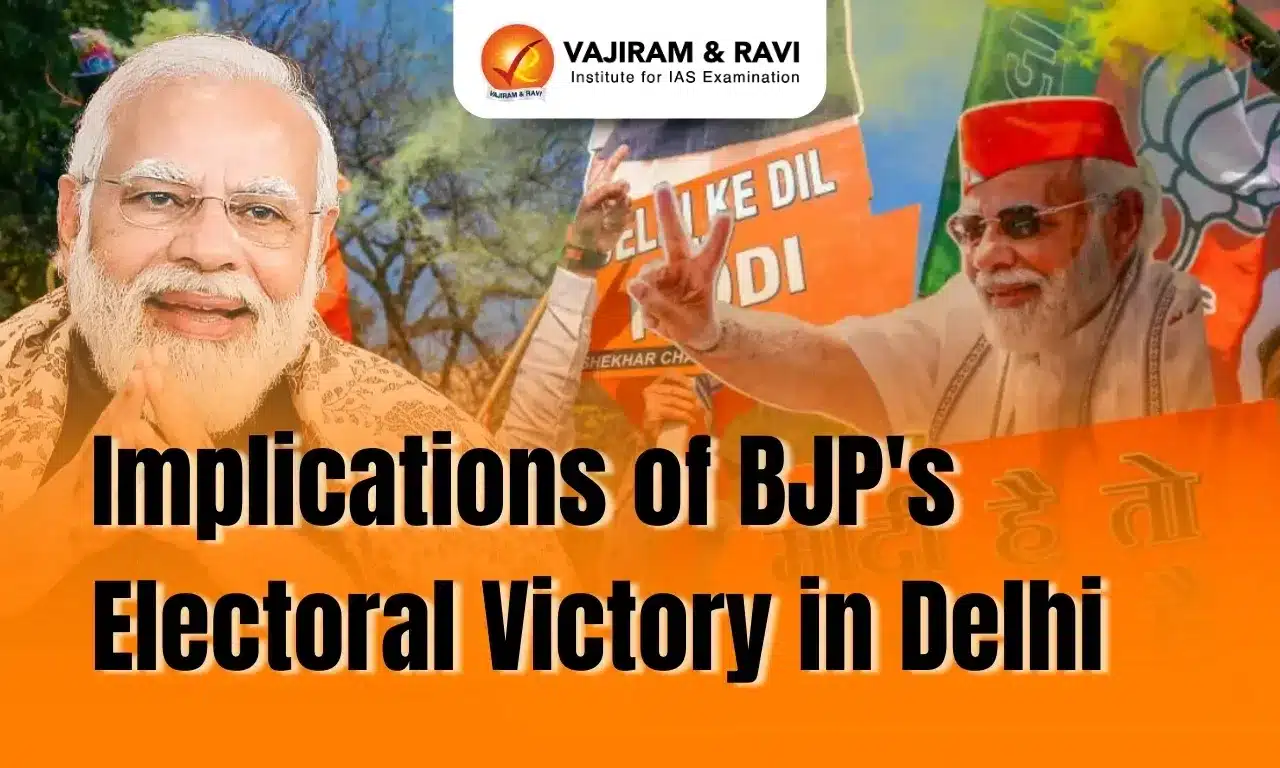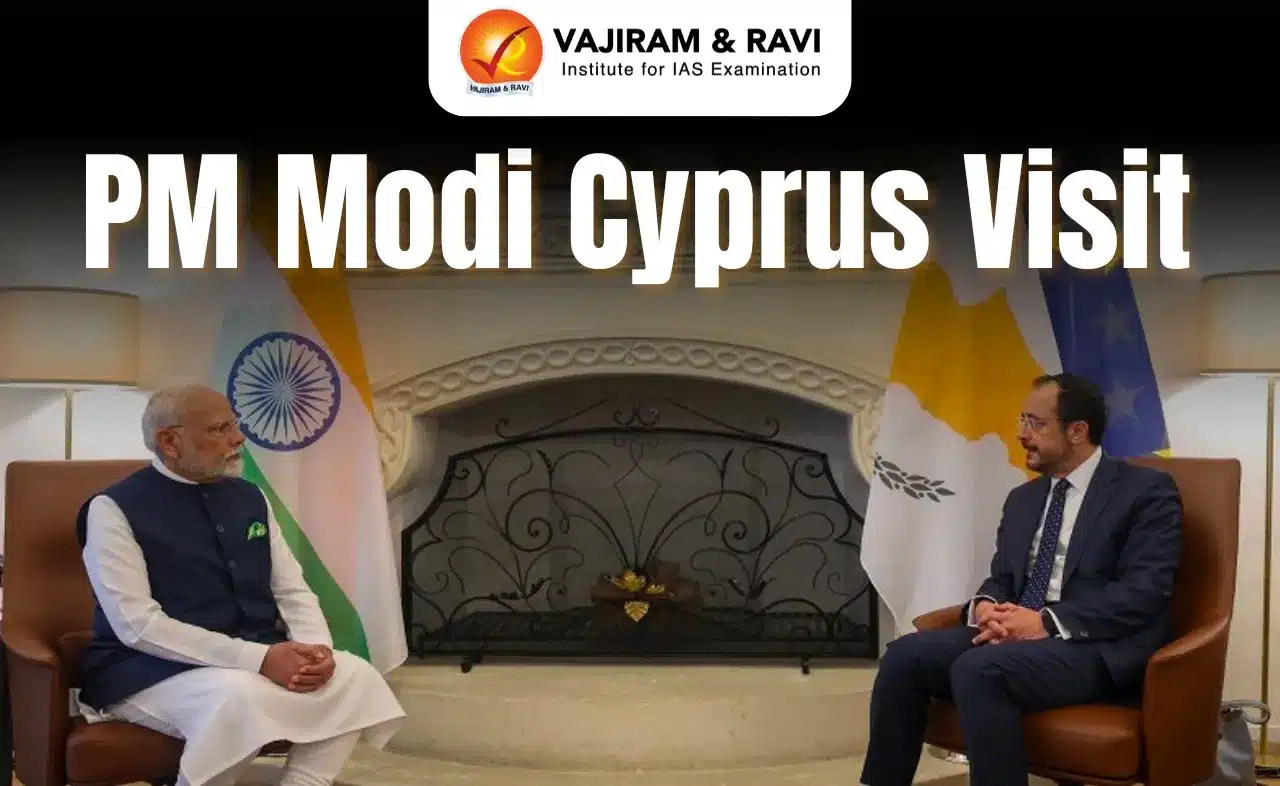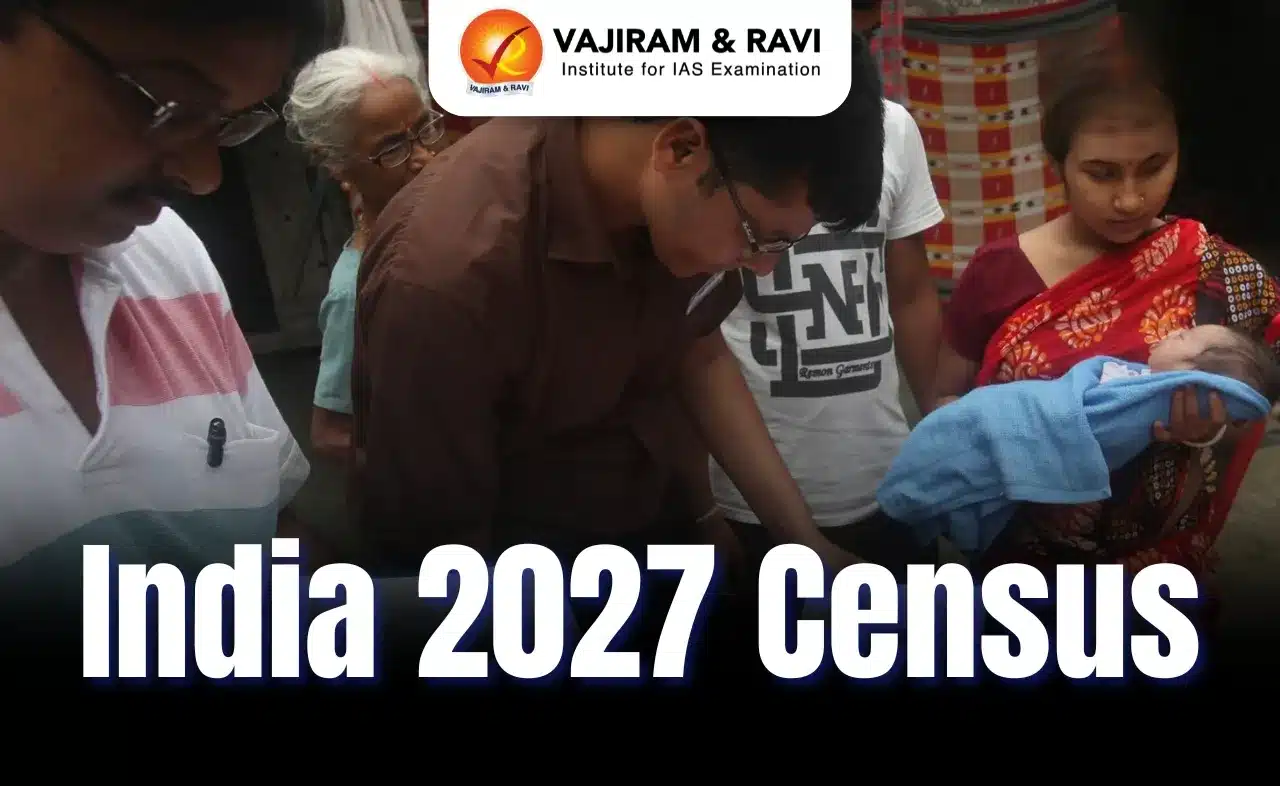What’s in Today’s Article?
- Implications of BJP’s Electoral Victory in Delhi Latest News
- Implications of BJP’s Electoral Victory in Delhi: Delhi Constitutional Status and Centre-State Relationship
- Implications of BJP’s Electoral Victory in Delhi: SC’s Intervention
- Implications of BJP’s Electoral Victory in Delhi: Impact of BJP’s Victory
- Implications of BJP’s Electoral Victory in Delhi: Key Policy Implications
- Implications of BJP’s Electoral Victory in Delhi: Challenges to Federalism
- Conclusion
- Implications of BJP’s Electoral Victory in Delhi FAQs
Implications of BJP’s Electoral Victory in Delhi Latest News
- The Bharatiya Janata Party’s (BJP) victory in the Delhi elections brings a new phase in the governance of the national capital.
- The political shift is expected to ease the long-standing conflicts between the Delhi government and the Centre over Delhi’s unique constitutional status.
Implications of BJP’s Electoral Victory in Delhi: Delhi Constitutional Status and Centre-State Relationship
- Article 239AA of the Constitution of India:
- It is about the special provisions for the National Capital Territory of Delhi. It was added by the Constitution (69th Amendment) Act of 1991.
- It limits the control of the elected government over services, land, police, and public order.
- While the pre-eminence of the Lieutenant Governor (L-G) is accepted in matters related to land, police, and public order, the issue of control over administrative services has been a major point of contention between the Centre and the Delhi government.
Implications of BJP’s Electoral Victory in Delhi: SC’s Intervention
- The Supreme Court, in 2017 and 2023, ruled in favor of the Delhi government, affirming its legislative and executive powers over administrative services.
- However, in May 2023, the Centre amended the Government of National Capital Territory of Delhi (GNCTD) Act of 1991, extending the L-G’s powers over bureaucratic appointments and transfers.
- The amendment led to the formation of a bureaucratic appointments body, where the Chief Minister could be effectively overruled by senior bureaucrats.
Implications of BJP’s Electoral Victory in Delhi: Impact of BJP’s Victory
- The BJP’s electoral win paves the way for a “double-engine” government, where the ruling party in the state aligns with the NDA-led Centre.
- A BJP-led state government is less likely to challenge the Centre’s policies, ensuring smoother governance.
- The Union Home Ministry’s role remains crucial, as it controls the Delhi Police.
- Synergy between the L-G and the Chief Minister may facilitate quicker approvals of projects, land allocations, and funding decisions.
Implications of BJP’s Electoral Victory in Delhi: Key Policy Implications
- Past conflicts, such as the Delhi Jal Board’s funding issue (Rs 3,000 crore) and the controversy over sending government school teachers abroad for training, might now be resolved more efficiently.
- The BJP-led government could potentially streamline governance and improve coordination in Delhi’s administration.
Implications of BJP’s Electoral Victory in Delhi: Challenges to Federalism
- The Supreme Court’s past rulings emphasized that Delhi’s governance must align with the basic structure of federalism.
- The BJP’s rule will test the spirit of the SC’s 2017 judgment, which warned against reducing governance to mere “semantics” over constitutional grammar.
- Whether the Centre respects the “popular will” remains to be seen in the coming years.
Conclusion
- With the BJP now in power, governance in Delhi is expected to be smoother, especially in coordination with the Centre.
- However, this shift also raises concerns about federalism, executive control, and the balance of power between the Centre and the state.
- The coming years will be a litmus test for the Supreme Court’s rulings on Delhi’s governance structure.
Implications of BJP’s Electoral Victory in Delhi FAQs
Q1. What is the constitutional status of Delhi under Article 239AA?
Ans. Article 239AA grants Delhi a special status as a UT with a Legislative Assembly. While the elected government has legislative and executive powers, control over land, police, public order, and services remains with the Centre.
Q2. How has the Supreme Court interpreted the power struggle between the Delhi government and the Centre?
Ans. The Supreme Court, in 2017 and 2023, ruled that the Delhi government has executive authority over administrative services.
Q3. What is the significance of the 2023 GNCTD Act amendment, and how does it affect governance in Delhi?
Ans. The amendment established a bureaucratic appointments body where the Chief Minister can be overruled by senior bureaucrats aligned with the Centre. This change limits the autonomy of the elected government and strengthens the L-G’s role.
Q4. What is meant by “double-engine governance,” and how could it impact Delhi?
Ans. “Double-engine governance” refers to the same political party ruling both the state and the Centre, leading to smoother coordination in policymaking and implementation.
Q5. How does the governance model of Delhi raise concerns about federalism in India?
Ans. The governance structure of Delhi, especially after the 2023 amendment, challenges the principles of cooperative federalism by reducing the power of the elected state government.
Source: IE
Last updated on June, 2025
→ UPSC Notification 2025 was released on 22nd January 2025.
→ UPSC Prelims Result 2025 is out now for the CSE held on 25 May 2025.
→ UPSC Prelims Question Paper 2025 and Unofficial Prelims Answer Key 2025 are available now.
→ UPSC Calendar 2026 is released on 15th May, 2025.
→ The UPSC Vacancy 2025 were released 1129, out of which 979 were for UPSC CSE and remaining 150 are for UPSC IFoS.
→ UPSC Mains 2025 will be conducted on 22nd August 2025.
→ UPSC Prelims 2026 will be conducted on 24th May, 2026 & UPSC Mains 2026 will be conducted on 21st August 2026.
→ The UPSC Selection Process is of 3 stages-Prelims, Mains and Interview.
→ UPSC Result 2024 is released with latest UPSC Marksheet 2024. Check Now!
→ UPSC Toppers List 2024 is released now. Shakti Dubey is UPSC AIR 1 2024 Topper.
→ Also check Best IAS Coaching in Delhi






















